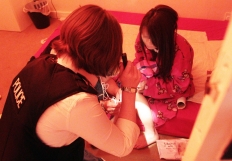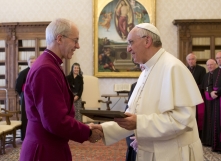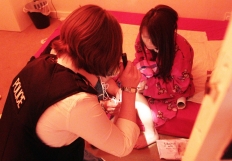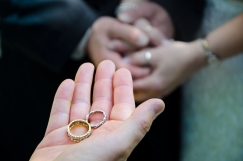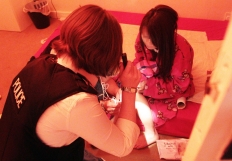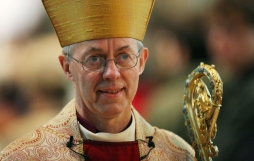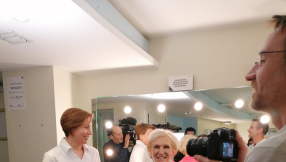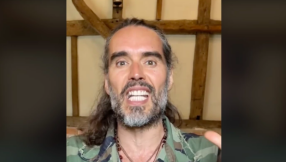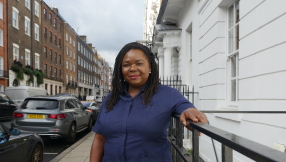
More police, better training and tougher sentences are needed to beat the human trafficking industry, according to the head of a Christian charity.
Mike Emberson, project director for the Salford-based Medaille Trust, which works with trafficking victims, spoke to Christian Today after the arrest of 13 people suspected of involvement with a trafficking ring in Greater Manchester.
The 10 men and three women were held in connection with the case of a pregnant 20-year-old woman from Slovakia who was sold for up to £15,000 by a gang which organised her marriage to a man facing deportation.
Police said the woman was flown to Luton in May, having been told she was to visit her sister. However, she was sold, and in July married under Sharia law in Rochdale.
She was later taken to hospital for an appointment by a woman who acted as an interpreter and told staff she wanted an abortion. An independent interpreter realised that she had been trafficked and the police became involved.
Revelations that pregnant women fetched higher prices as their husbands were more likely to be able to stay in the UK have shocked many.
However, Emberson told Christian Today: "To people who know about human trafficking, there is nothing surprising in what has happened.
"This is not the most extreme case I have seen. The worst was a woman forced to have 19 abortions."

He said that women used to be paid for contracting sham marriages, but that they were increasingly trafficked against their will for the purpose. Traffickers brought women in from countries such as Lithuania on a 'life-cycle' basis, he explained, knowing that they could engage in around 10 'marriages' before registrars became suspicious.
"The criminals need to keep one step ahead," he said. "They have absolutely no regard for human life. They are looking for a low-risk, high-return operation."
He called for more effective policing and tougher sentences, saying: "These are greedy people who want money. If we want to end the traffic we need to twist it round so that it becomes high-risk and low-return.
"We need to put resources into police officers so that they can catch them and jail them. Outside London, as far as I am aware there are no specialist human trafficking units in the country."
He called for more investment in victim support, both on humanitarian and practical grounds, saying: "Good victim support makes for good witnesses, which leads to successful prosecutions."
Emberson also called for registrars and church ministers to be given more training in recognising potential cases of sham marriages. "There are cases where they may have thought, 'This is not quite right, but why should I step in?' They need to stop and think that not everyone may be a willing partner."










